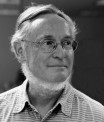Dr. Alan K. Betts
Dr. Alan K. Betts was educated in England. He has a BA and MA in Natural Sciences from the University of Cambridge and a PhD in Meteorology from Imperial College, University of London in 1970. As a grad student he was invited to participate in a weather research project in Venezuela in 1969. He came to the US as a post-doc in the Atmospheric Science Department at Colorado State University in 1970; where he served on the academic faculty till 1979. He continued research on tropical weather, and in 1974 was appointed the Convection Subprogam Scientist for a major international field program in the tropical Atlantic with the acronym GATE.
In the late 1970s, he moved to Vermont, and for 40 years he has continued his research on regional and global weather and climate. He has worked with scientists and institutions in the US and around the world; and on many national and international research projects. His work has received wide recognition and several awards.
After moving to Vermont, Alan Betts was funded as an independent scientist by the National Science Foundation for 33 years on long-term grants (the last being grant AGS05-29797, 2005-2012, Jay Fein, program director). He has also been funded by NASA to support three climate field projects: one in the Konza Prairie in Kansas, one in the boreal forest of Canada and one in the Brazilian Amazon. He has been funded by NOAA to evaluate and improve their regional and global forecast models. In the past decade, he has been working on understanding the climate of the Canadian Prairies, funded by Agriculture-Canada; and climate change impacts on the Lake Champlain basin of Vermont, funded by VT EPSCoR grant No. NSF OIA 1556770 to the University of Vermont.
The purpose of this web-site is to archive my research, and to make available to the public my writings and commentaries explaining climate change issues. The pages on “Understanding Climate Change” are a guide to this very complex set of issues: how climate change is affecting the Earth; the northern US states and how we might respond to it.
We live in a sea of misleading, deceptive and outright fraudulent information on climate change, so the first question you should ask is:
How do you know if I am a trustworthy Guide?
Check my research work and credentials: open my Google Scholar research page. This will give you a glimpse into my research - and who has cited and used it around the world. Read the citation for the American Meteorological Society Jule G. Charney Award (2007) for my work; or the citation for the 2016 Bert Bolin Award.
For more general background, google Alan K. Betts and scan through pages till you have a sense of my web of connections: see where I have been invited to lecture and present science.
Read what I believe are my responsibilities as a scientist to communicate what I know and the responsibility of scientists to both the public and the Earth or step into the Indigenous world and Resolve to Save the Earth
Read what the Yale Forum on Climate Change says about my work - or read this Editorial in the Times-Argus.
Ask opinions from the many groups in Vermont that I have spoken to this decade; or from my scientific colleagues.
Dr. Alan K. Betts
Dr. Alan Betts of Atmospheric Research in Pittsford, Vermont is a leading climate scientist. He is a frequent speaker on climate change issues around the state, and has worked on climate change adaptation planning for Vermont. He is a Weekly Planet columnist for the Rutland Herald and Barre-Montpelier Times-Argus. You can see and hear his radio and TV appearances on his talks page.
He is a Fellow of the American Geophysical Union, the American Meteorological Society (AMS), the Royal Meteorological Society, the American Association for the Advancement of Science, and a past-president of the Vermont Academy of Science and Engineering (VASE). He is the author or co-author of more than 205 reviewed papers in the scientific literature. He was the AMS Robert E. Horton Lecturer in Hydrology in 2004; and the AMS Jule Charney Award winner in 2007. In 2016, Alan Betts was the first recipient of the Bert Bolin Global Environmental Change Award from the American Geophysical Union.
Atmospheric Research was established in Vermont in 1979. Its mission is to understand the earth’s weather and climate, to develop improved earth system models and to help society understand the existential challenge of global climate change.
